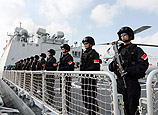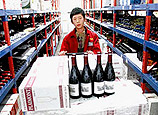
Hu's report, however, was an unambiguous message that ruled out the possibility of a policy waver, as Hu vowed reform under the banner of socialism with Chinese characteristics.
Observers' guesses, in a sense, showed their lack of understanding regarding China. They also reflected expectations for something "big" to happen at a moment when the country is standing at crossroads and the world is witnessing economic and political turmoils elsewhere.
It's true that the ruling party is confronted with challenges, including corruption and widening wealth gaps, as the president acknowledged in his report.
The problems may lead to discontent and even protests, but as Professor Xie Chuntao with the Party School of the CPC Central Committee noted, the very acknowledgement of the challenges in the political report demonstrates the Party's confidence to solve these problems.
"The Party is well aware of the possible perils and is courageous enough to acknowledge and stand up to problems. That is a demonstration of self-confidence," Xie said.
The contemporary political term "wei wen," or "maintaining stability," may be helpful in understanding why "bu zhe teng" is important in Chinese political culture.
Stability is not literally a synonym of certainty, but instability is regarded as a threat to certainty. While the Chinese authorities have taken stability as a priority in governance, the general public also believes that instability brings nothing good.


















 First alpine rail gets midnight maintenance
First alpine rail gets midnight maintenance


![]()
